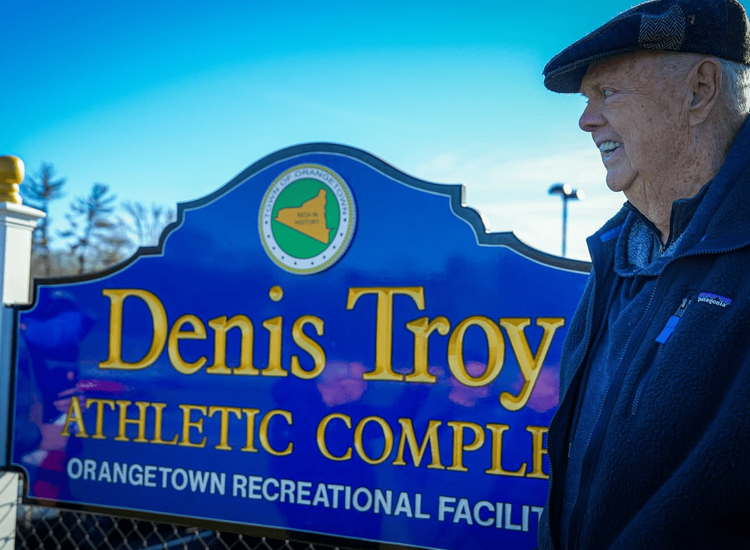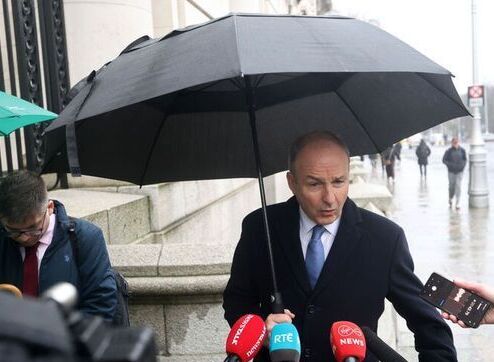[caption id="attachment_67269" align="aligncenter" width="600" caption="Al Smith"]
If you missed "Prohibition," the latest PBS masterpiece from filmmaker Ken Burns, check for the inevitable re-runs. Or buy the DVD. You won't be disappointed.
One of the tragic heroes of the series is Al Smith, the self-identified Irish-American politician from the Lower East Side who symbolized everything that the prohibitionists hated. It wasn't so much that Smith liked a glass of beer from time to time. It was, well, it was everything else, too.
He was of immigrant stock. He was Catholic. He was urban. He was self-educated. He spoke with an accent that identified him as all of the above.
What's more, he was straightforward in his opposition to Prohibition. While some politicians tried to steer a middle ground (most notably an ambitious fellow from Hyde Park named Franklin D. Roosevelt), Smith was consistent and clear. He understood that Prohibition wasn't simply about drinking. It was about one group of Americans seeking to regulate and change the behavior of another group of Americans - a group that happened to include lots of Irish Catholic city-dwellers.
In the Burns film, Smith and his allies come across as a collective voice for common sense in a nasty public debate filled with nativist, anti-immigrant overtones. As the filmmaker notes, during the long, bitter Democratic National Convention in New York in 1924, some of the strongest supporters of Prohibition were members of the Ku Klux Klan.
About 300 Klan members were on the floor in Madison Square Garden, pledged not only to keep the nation dry, but to keep the party from nominating Smith for president.
Burns showed that Prohibition was part of a larger cultural and political battle underway in the United States during the 1920s. On one side were native-born temperance advocates, many of them well-meaning, but some, like the KKK, not so.
On the other side were immigrants or their offspring, who saw in Prohibition a larger attack on their identity, their values, and their culture.
Guess which side won?
Prohibitionists saw themselves as reformers, as progressives, who would legislate their version of morality into law. Alcohol, they believed, was responsible for all sorts of social pathologies which they associated with cities, immigrants, and non-Protestants. The poor really didn't understand what was good for them, but the reformers did.
The result was a catastrophe of immense proportions. Ordinary citizens developed a contempt for the law and for those who enforced it (or didn't). Criminals made a fortune providing citizens with products the government outlawed. The bootlegger became a kind of anti-hero; the authorities who tried to enforce the law became, in essence, the bad guys.
Through it all, Irish-American politicians like Smith flouted the law in private and argued against it in public. Smith and his peers didn't commission polls before forming their views. They didn't have to; they were in touch with their constituents because they lived among them and shared many of the same values.
And they stood up for those values, even when it hurt their careers. Al Smith was turned into a villain in the South
and even in parts of his home state of New York for many reasons such as his religion and his ties to Tammany Hall. But his position on liquor certainly did him little good.
The film implicitly raised questions about today's efforts to legislate morality and, even more implicitly, to shut down the flow of drugs. Yesterday's Al Capone is today's drug lord, or so it seems. The film doesn't say this explicitly, but it was hard not to come to that conclusion.
More important, however, was the overarching theme of how Prohibition was related to a broader cultural war between native-born Protestants and immigrant Catholics and Jews.
To be sure, there surely were some native-born Protestants who opposed Prohibition, just as there were Irish-Catholic temperance advocates.
Generally speaking, however, the conflict pitted a certain type of American against another type of American, although, truth be told, the native-born were not above accusing immigrants and their spokesman of being something other than American.
That attack came right from the top, and began well before Prohibition, when Woodrow Wilson questioned the loyalty of so-called "hyphenated Americans." As many Irish Americans said at the time, Wilson and his type (including Teddy Roosevelt) never stopped to consider if Anglo-Saxon Americans counted as "hyphenated Americans."
Today, of course, it's hard not to notice the sharp edges of our cultural conflicts. On one side are immigrants - not the Irish anymore, but Mexicans and Muslims, among others.
On the other side are those who are offended when they see government documents printed in Spanish, or who believe that mosques are a threat to national security.
Prohibition is long gone. But the cultural divide, as current political debate shows, seems as wide as ever. Who, then, will speak up for today's despised immigrants?










